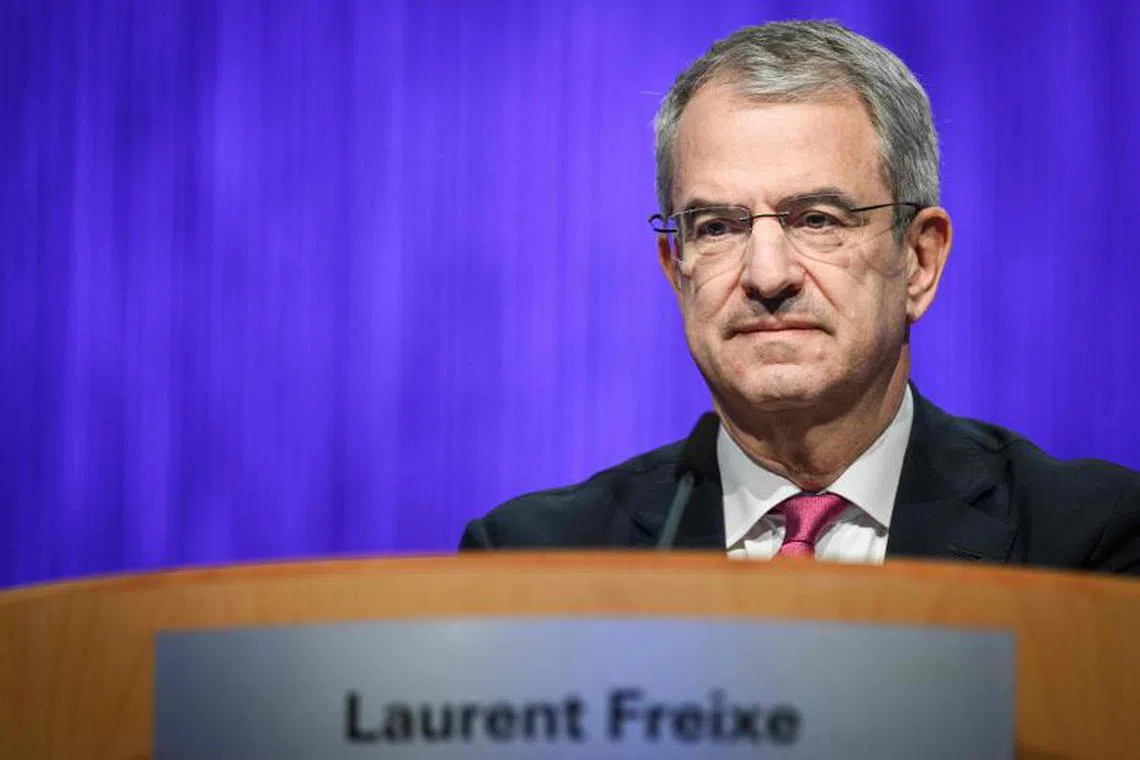- Joined
- Apr 14, 2011
- Messages
- 20,774
- Points
- 113
Nestle sacks CEO Laurent Freixe over undisclosed romantic office relationship
Get ST's newsletters delivered to your inbox
Mr Laurent Freixe's firing extends management turmoil at the world’s biggest food company that’s known for its conservative corporate culture.
PHOTO: AFP
Follow topic:
CEOPublished Sep 02, 2025, 04:33 AM
Updated Sep 02, 2025, 12:19 PM
Frankfurt - Nestle dismissed chief executive Laurent Freixe after only a year due to an undisclosed workplace affair, extending the management turmoil at the world’s biggest food company that is known for its conservative corporate culture.
An investigation showed that Mr Freixe had an undisclosed romantic relationship with a direct subordinate that violated Nestle’s code of conduct, according to a release on Sept 1 from the Swiss owner of Purina pet supplies and KitKat chocolate bars. It named Mr Philipp Navratil, who heads the Nespresso coffee brand, as his replacement.
Mr Freixe took over after the surprise ouster in 2024 of Mr Mark Schneider, who was let go due to sluggish performance during his nearly eight-year tenure. At the time, Mr Freixe was seen as a safe pair of hands who would restore Nestle’s traditional strengths after Mr Schneider – a rare outsider in the top job – had taken the company in new directions.
“This comes at a sensitive juncture, as Nestle is already under the spotlight amid a negative news flow,” said Vontobel analyst Jean-Philippe Bertschy. “Nestle should soon find calmer waters, as investors’ nerves have been tested for several months.”
The matter involving Mr Freixe was first brought to company officials’ attention through an internal system called “speak up”, according to a person familiar with the situation. After the allegations could not be substantiated via an initial probe, further concerns were raised via the internal system and the investigation with external counsel was launched, according to the person familiar with the situation.
Mr Freixe will not receive an exit package, a spokesperson said.
Mr Freixe is only the latest of a string of top business figures to be propelled through the exit door in recent years over relationships with colleagues found to be in violation of internal rules.
Mr Bernard Looney resigned unexpectedly as CEO of British energy giant BP in 2023 over his failure to disclose past relationships with colleagues.
Mr Steve Easterbrook was ousted as CEO of McDonald’s in 2019 for having a “consensual relationship” with an employee, in violation of company policy.
A year earlier, Mr Brian Krzanich stepped down as CEO of US computer chip giant Intel over a “past consensual relationship” with an employee in violation of the company’s non-fraternisation policy.
Mr Freixe aimed to reignite growth and win over shoppers by boosting advertising spending and betting on fewer but bigger product initiatives. He also kicked off a strategic review of struggling vitamin brands and spun off Nestle’s waters business into a standalone unit. However, he failed to regain investors’ trust, with Nestle shares dropping 17 per cent under his tenure, compared with a roughly 5 per cent decline for rival Unilever.
Nestlé’s sales volumes contracted 0.4 per cent in the second quarter of 2025.
New chief
Mr Navratil, a company veteran of more than 20 years, joined the executive board at the start of this year. Before running Nespresso, he was senior vice-president and head of the Coffee Strategic Business Unit, where he was responsible for global strategy for the Nescafe brand and a licensing partnership with Starbucks.
Mr Navratil has the potential to accelerate long-term growth and look at portfolio restructurings such as an exit from lower-growth cereals and water, Bloomberg Intelligence’s Duncan Fox said in a note. As Mr Navratil has yet to turn 50, he could see a 10-year-plus tenure, Mr Fox added.
Another challenge for Nestlé is the global trade friction prompted by US President Donald Trump’s tariffs. Mr Freixe has often pointed to the fact that some 90 per cent of Nestle’s US-sold products are made domestically. One prominent exception is Nespresso capsules, which are exclusively produced in Switzerland and now face a 39 per cent tariff. BLOOMBERG, AFP
